Medicines shortage is 'unprecedented', GP says
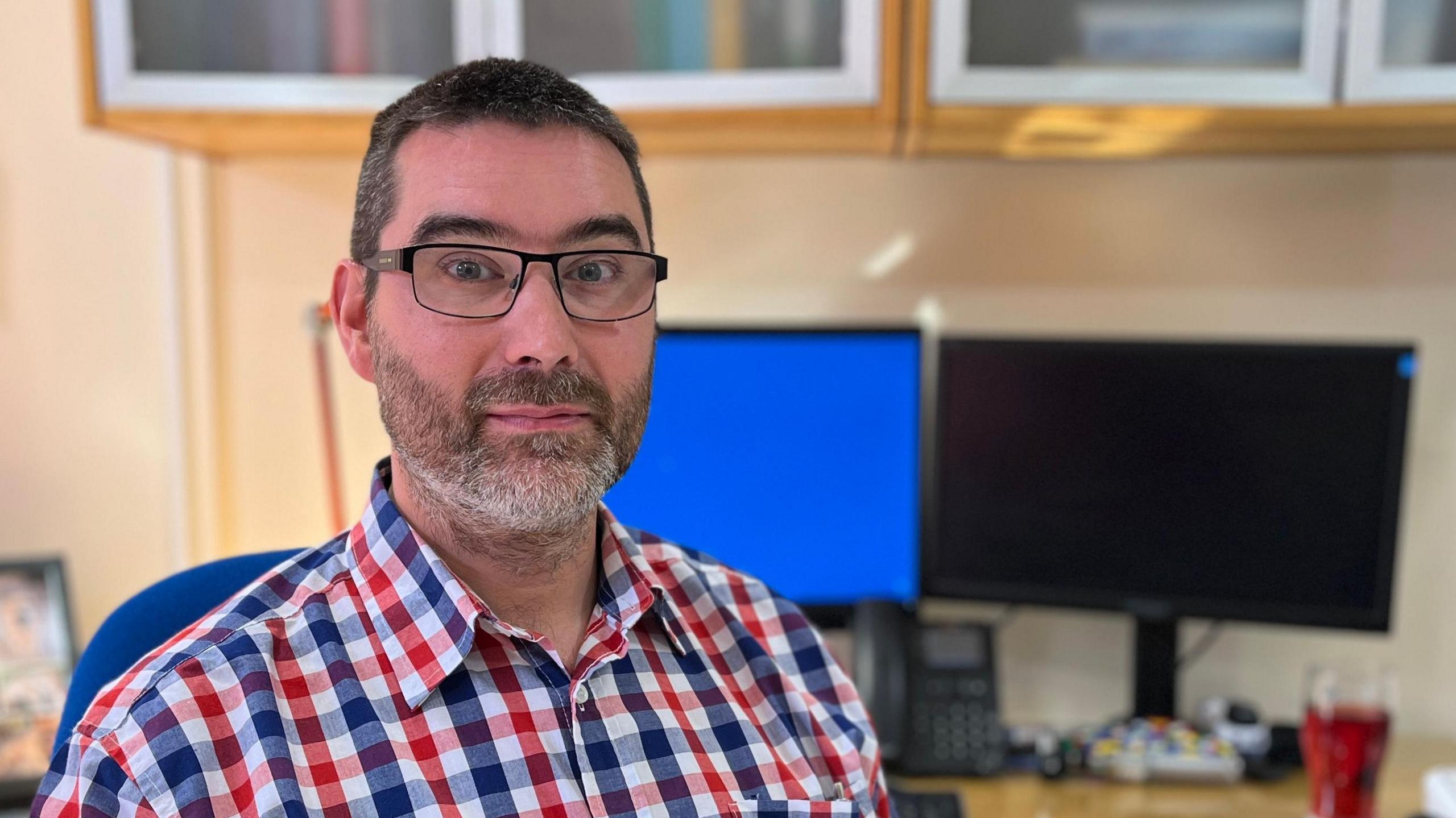
Dr Dan Lane says patients are at risk from "unprecedented" drug shortages
- Published
A GP has said he is spending the equivalent of three patient appointments a week trying to find medicines that are out of stock or in short supply.
Dr Dan Lane, a GP partner at Willingham by Stow Surgery, Lincolnshire, said the situation was "unprecedented", with common drugs such as statins and insulin recently very difficult to find.
The surgery's dispensary staff said they had been shouted at by a few frustrated patients when prescriptions could not be filled.
The Department of Health and Social Care said the government "inherited ongoing global supply problems that continue to impact medicine availability" and was working with industry, the NHS and manufacturers.
Dr Lane, who has worked in the village practice, near Gainsborough, since 2015, said the current level of shortages was "unprecedented" and "frustrating" for staff and patients.
"Time we spend trying to find alternatives for them is time we can't be spending seeing other patients and getting on with the day job.
"On average we're spending half an hour a week on this. That's three patients not being seen, so it's substantial."
He expressed concerns about the risk to patients, particularly in relation to anti-psychotics, drugs for epilepsy and insulin, when "potentially patients are going to come to great harm".
"It's sounds trivial, but even changing from 50mg tablets to 100mg of the same drug comes with a level of risk, because if patients are used to taking two tablets, and you give them 100mg tablets, they carry on taking two tablets. It's ever so easily done."
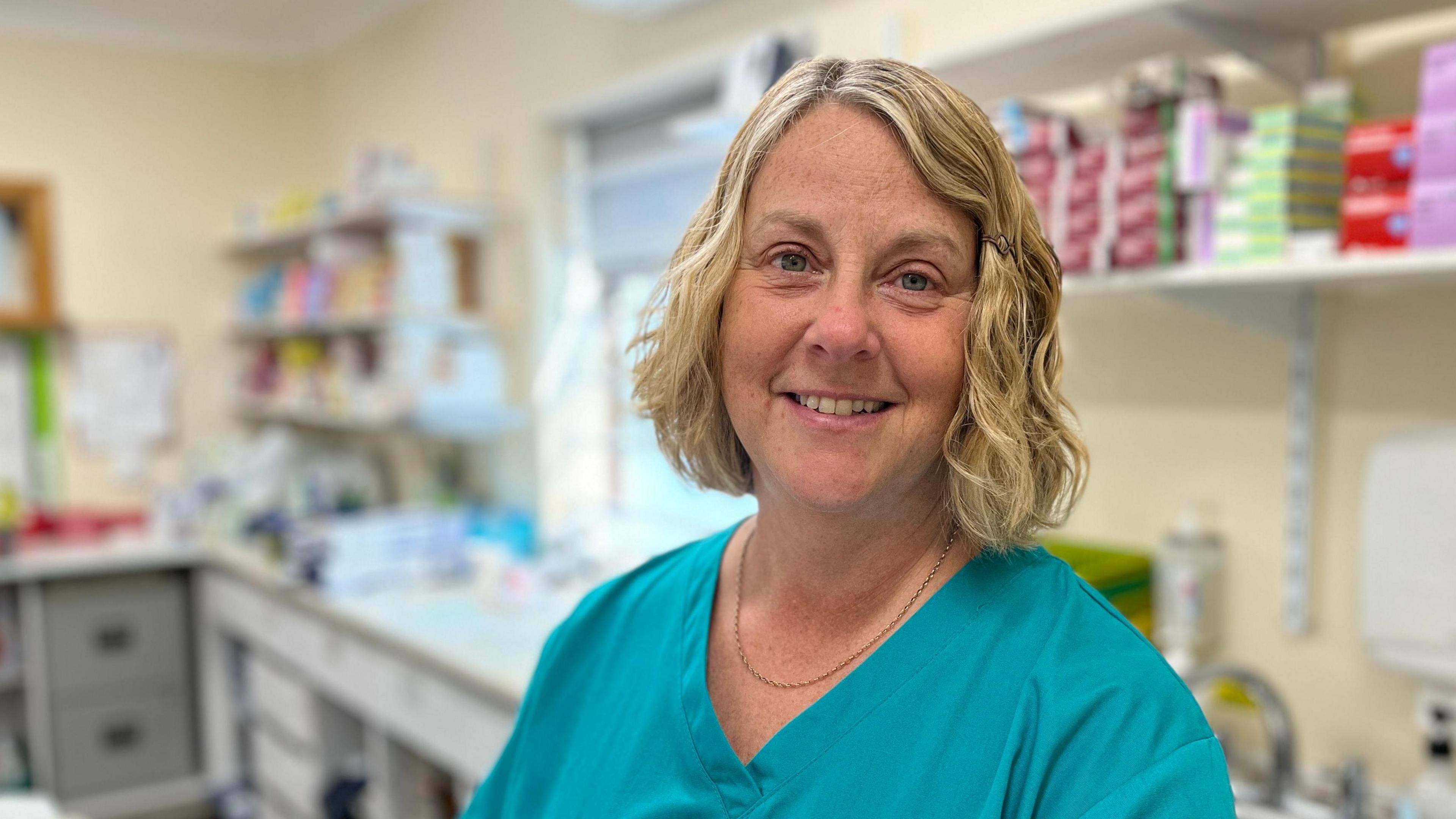
Dispensary technician Denise Burton says she has faced abuse over drug shortages
Staff at the practice said they had been shouted at by some patients who were frustrated and anxious when unable to get their prescriptions filled.
Denise Burton, a dispensary technician, said that two or three times a month the situation would become so heated that patients would be reported to the practice manager.
"Sometimes the patients think it's our fault. They don't seem to understand we're in the middle between the patient and the manufacturers and we can't get hold of things," she said.
"They get quite angry, which you can understand because it's their health, but when we can't get it, our hands are tied.
"It puts pressure on us, because it's not nice for the person taking the abuse."
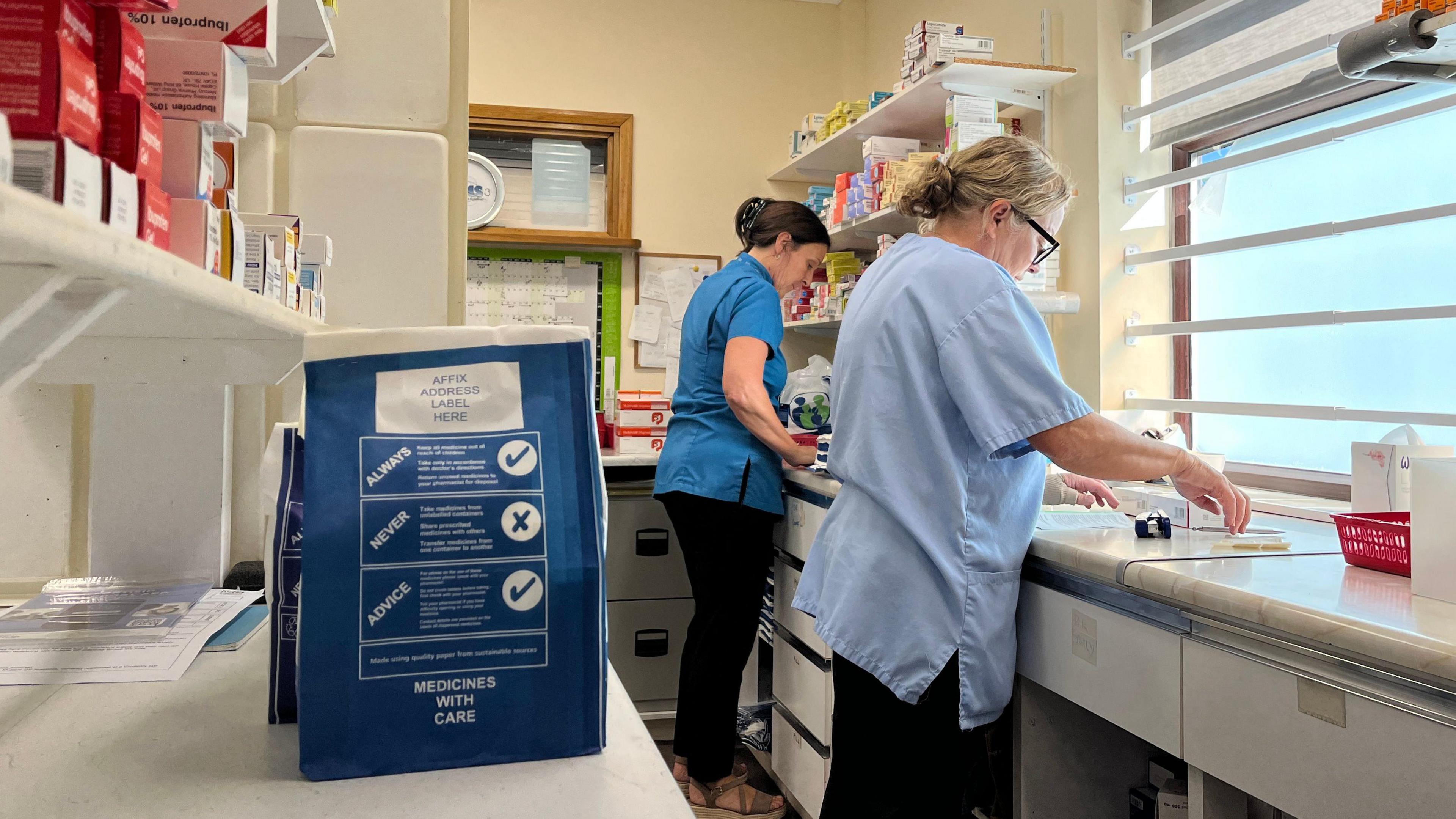
Dispensary staff say there are seeing daily shortages of common medications
Drug shortages have made headlines over the past three years, including supplies of HRT for menopausal women, ADHD medication, liquid antibiotics for children, the diabetes and weight-loss drugs Ozempic and Wegovy, and most recently Creon, often taken by patients with pancreatic cancer.
Dr Lane said shortages had led to some patients trying to "stockpile for themselves, so we can end up with a situation like toilet rolls during Covid".
The cost of drugs in short supply would "skyrocket", impacting the wider NHS budget, he added.
The Department of Health and Social Care said the majority of medicines were in good supply, but because medicine supply chains were complex, global and highly regulated, disruptions were often not specific to the UK and were outside of government control.
A spokesperson said: “We know how frustrating and distressing medicine supply issues can be for patients, but staff have the right to work free from abuse – there is never a justification for threatening behaviour.
“This government inherited ongoing global supply problems that continue to impact medicine availability, and we are working closely with industry, the NHS, manufacturers and other partners in the supply chain to resolve current issues as quickly as possible.”
Listen to highlights from Lincolnshire on BBC Sounds, watch the latest episode of Look North or tell us about a story you think we should be covering here, external.
- Published13 August 2024
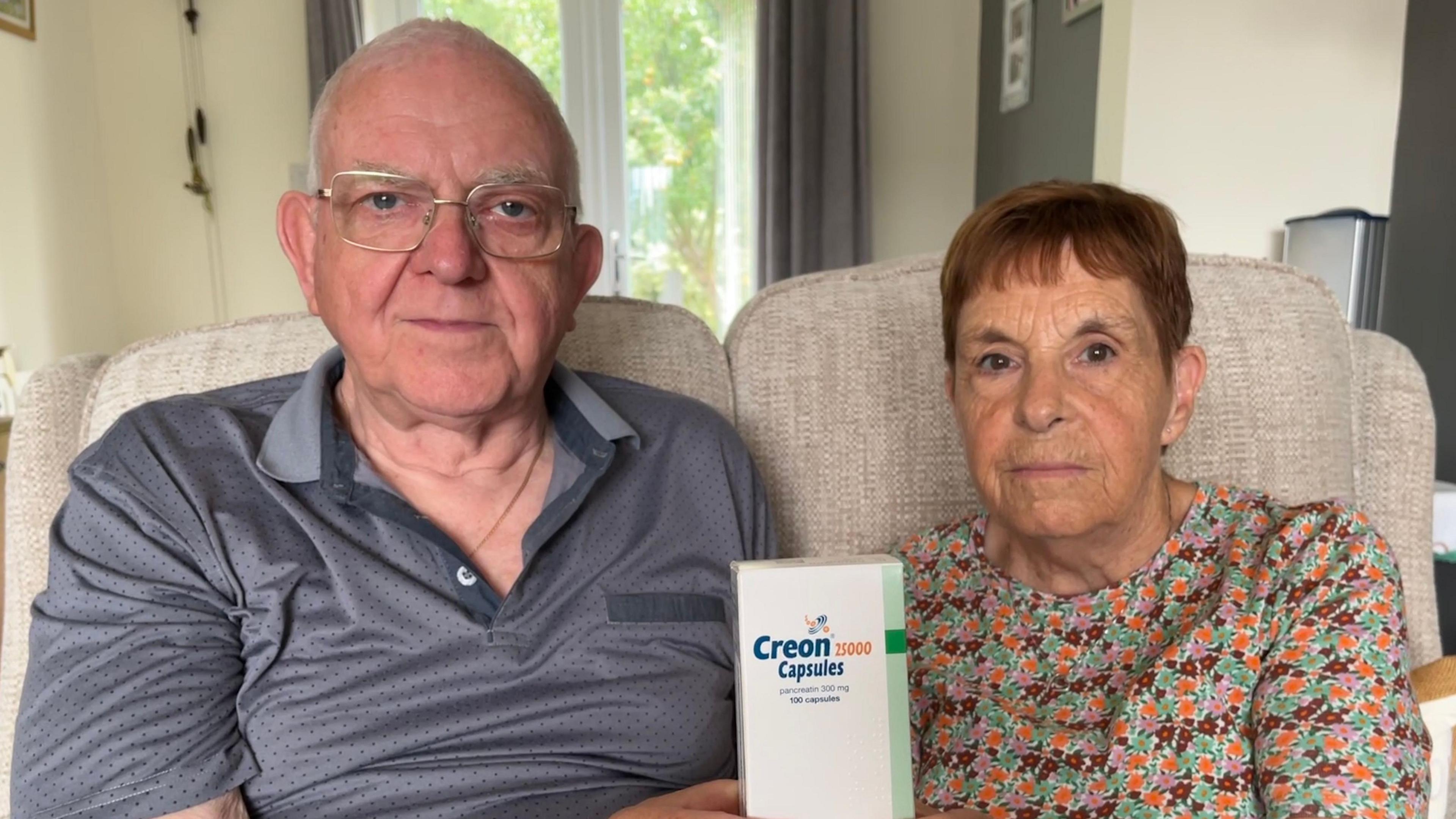
- Published11 February 2024
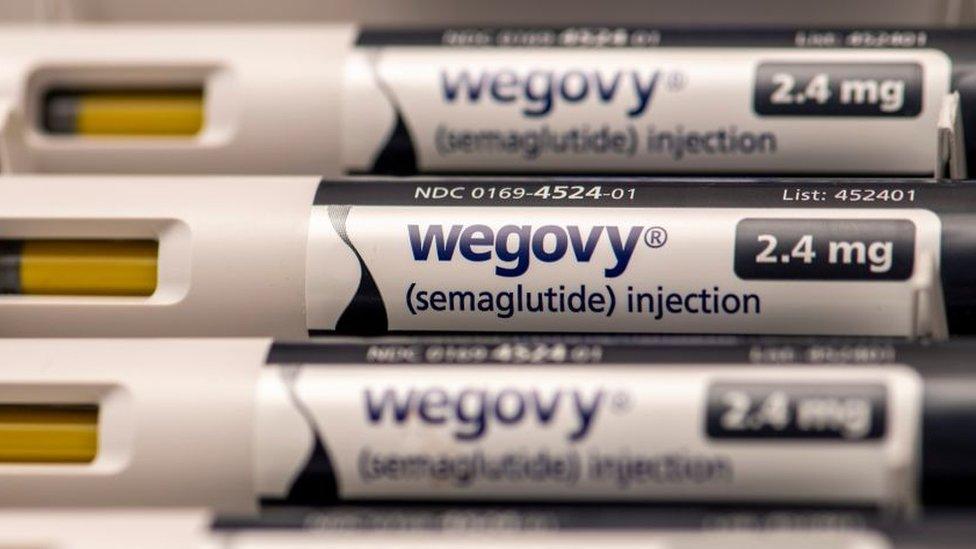
- Published5 September 2024
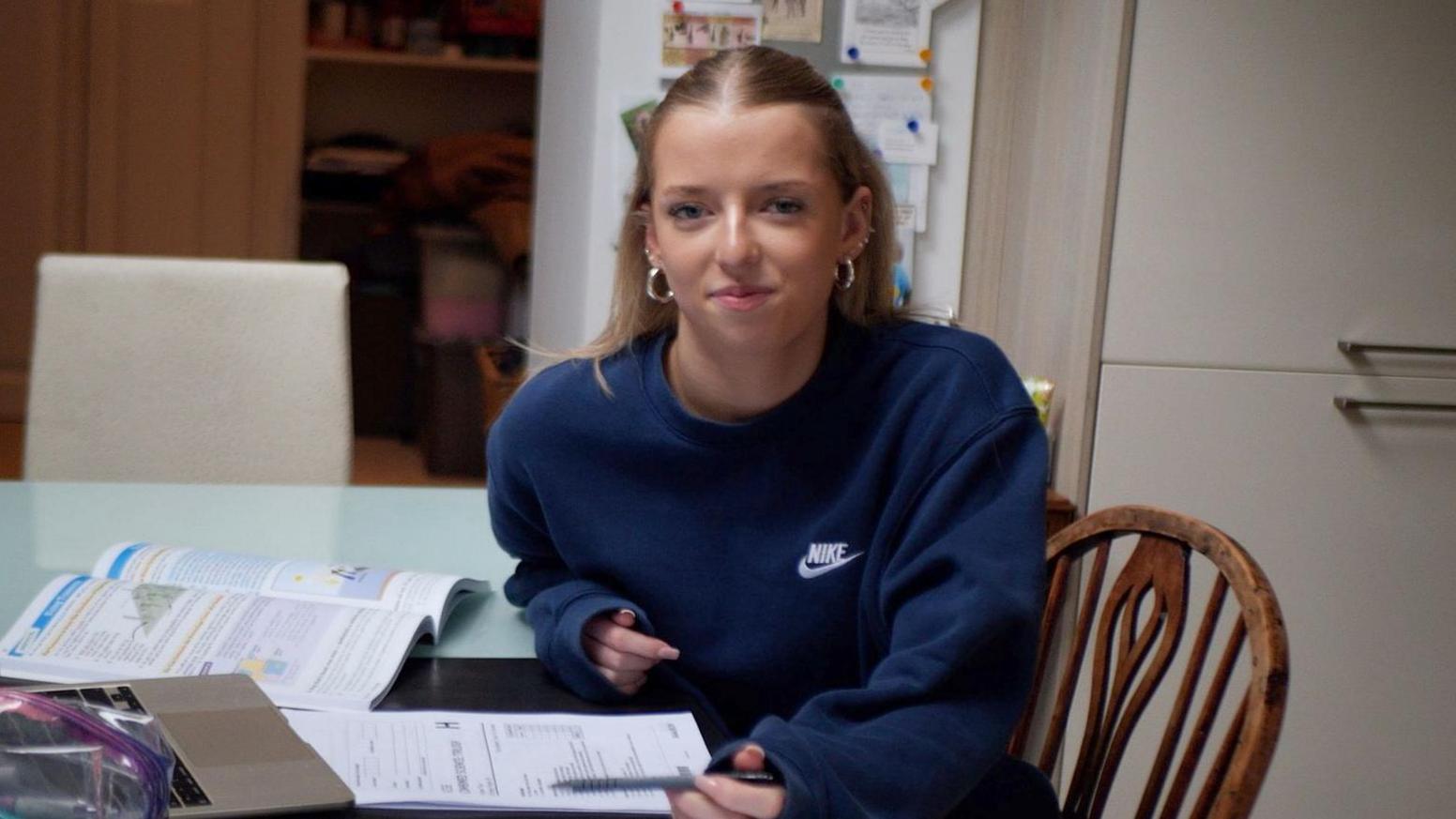
- Published2 August 2024
